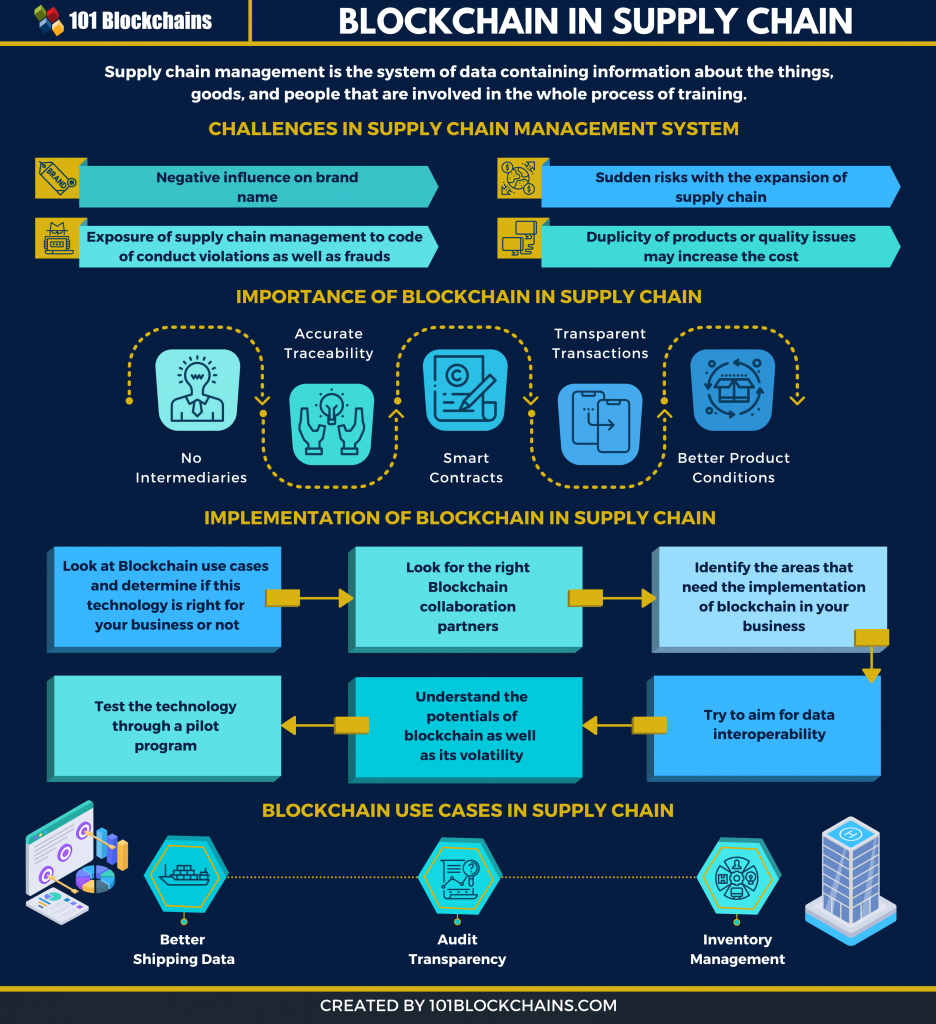Revolutionizing The Flow Of Goods: How Blockchain Is Transforming Supply Chain Digitization
Revolutionizing the Flow of Goods: How Blockchain is Transforming Supply Chain Digitization

- Dive Into The World Of Decentralized Finance With Yield Farming
- Unique NFTs And Digital Content – A New Era Of Monetization
- How To Spot The Next Bitcoin Tips For Finding Promising Altcoins
- Protecting Your Crypto Fortune: A Deep Dive Into Multi-Signature Wallets
- The Role Of Blockchain In Revolutionizing The Healthcare Industry
Imagine a world where products move seamlessly from manufacturer to consumer, with every stage of the journey tracked, verified, and secure. This isn’t just a utopian dream; it’s the promise of blockchain technology in supply chain digitization. But what exactly is blockchain, and how is it revolutionizing the way goods flow around the world?
At its core, blockchain is a decentralized, digital ledger that records transactions across a network of computers. It’s the same technology that underpins cryptocurrencies like Bitcoin, but its applications extend far beyond digital currency. In the context of supply chain management, blockchain provides a secure, transparent, and tamper-proof way to track the movement of goods.
So, how does it work? Let’s say a manufacturer produces a shipment of electronics, which are then transported to a warehouse, packaged, and shipped to retailers. With blockchain, each stage of the journey is recorded as a "block" of data, which is then added to a "chain" of previous blocks. This creates an immutable record of the product’s history, from raw materials to end customer.
But what are the benefits of using blockchain in supply chain management? For one, it provides unparalleled transparency. With blockchain, every stakeholder – from manufacturers to logistics providers to retailers – can access the same information, in real-time. This reduces errors, improves communication, and increases trust.
Another key benefit is security. Because blockchain is a decentralized system, it’s virtually impossible to hack or manipulate. Transactions are timestamped and recorded on the blockchain, making it a permanent and unalterable record of events. This is particularly important in industries where authenticity and provenance are paramount, such as luxury goods, pharmaceuticals, or food.
But blockchain’s impact on supply chain digitization goes beyond just security and transparency. It also has the potential to revolutionize the way we approach inventory management, shipping, and customs clearance. With blockchain, products can be tracked and verified in real-time, reducing the need for manual checks and paperwork.
Maersk, the world’s largest container shipping company, is already using blockchain to track the movement of goods across its vast network. The company estimates that this will reduce transit times by up to 40%, and cut costs by up to 20%. Other companies, like Unilever and Nestle, are using blockchain to track the sustainability and quality of their products.
As the use of blockchain in supply chain management becomes more widespread, we can expect to see even more innovative applications. For example, smart contracts – self-executing contracts with the terms of the agreement written directly into lines of code – could be used to automate payment and shipping processes. Or, blockchain-based platforms could be used to facilitate the sharing of data and resources between companies, creating a more collaborative and efficient supply chain.
Of course, there are also challenges to consider. Implementing blockchain technology requires significant investment in new infrastructure and training. And, as with any new technology, there are concerns about scalability, interoperability, and regulatory frameworks.
Despite these challenges, the potential benefits of blockchain in supply chain digitization are undeniable. By providing a secure, transparent, and tamper-proof way to track the movement of goods, blockchain has the potential to transform the way we think about supply chain management. As the technology continues to evolve, we can expect to see even more innovative applications, from increased efficiency and reduced costs to improved customer experiences and greater supply chain visibility.
As the world becomes increasingly interconnected, the flow of goods will only continue to grow. But with blockchain technology, we have the opportunity to create a more transparent, efficient, and secure supply chain – one that benefits every stakeholder, from manufacturer to end customer.
